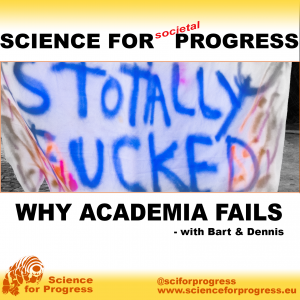
The main topic for this episode is Why Academia Fails… or better, what we may learn from the book “Why Nations Fail” (Acemoglu & Robinson) about the shortcomings of academia. But before we get to it, we will talk briefly about what happened over the last month – most importantly, I will give you my report on the Global Climate Strike as I experienced it in Lisbon, on September 27th.
This episode is special, in the sense that we decided to make it a 2-Part episode. In this first part we basically set up the background information, and in the November talk episode, we will have a proper, structured discussion.
And you have the chance to contribute! If you have read the book “How Nations Fail”, or are for other reasons familiar with the concepts of extracting and inclusive institutions, give us your feedback on how this could be applied to academia!

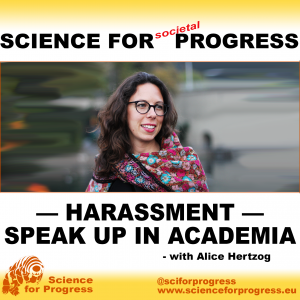
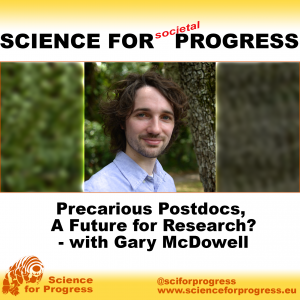
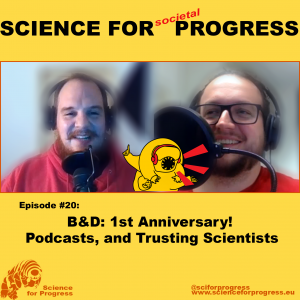
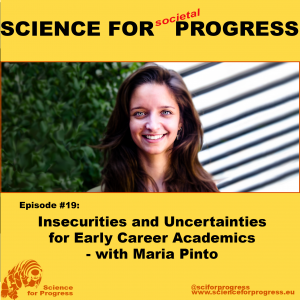
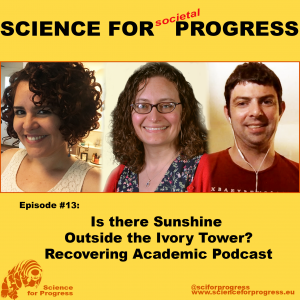
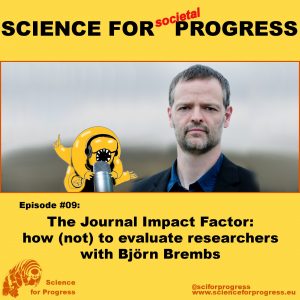
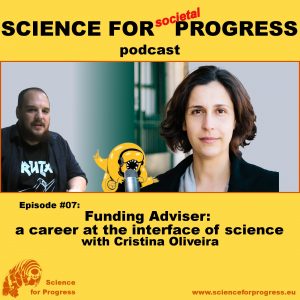 Most academics won’t stay in academia… or let’s say, not every PhD will land a permanent position as a researcher. With the increasing numbers of PhDs this situation is becoming more serious. In this context, we want to interview people who work in so called ‘alternative careers’. Some of these careers are still related to academia. We hope these interviews will be of interest to people in general, since they may learn something more about how academia works. For PhDs who may not stay researchers, it should be interesting to know what kinds of careers they can have beyond the ivory tower.
Most academics won’t stay in academia… or let’s say, not every PhD will land a permanent position as a researcher. With the increasing numbers of PhDs this situation is becoming more serious. In this context, we want to interview people who work in so called ‘alternative careers’. Some of these careers are still related to academia. We hope these interviews will be of interest to people in general, since they may learn something more about how academia works. For PhDs who may not stay researchers, it should be interesting to know what kinds of careers they can have beyond the ivory tower.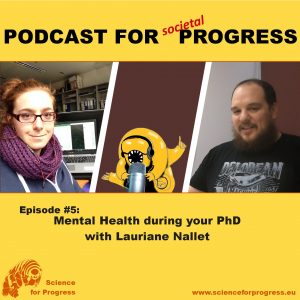 Working on your PhD is a stressful phase, and the academic culture isn’t making it better. In this episode I talk to Lauriane Nallet, who is a PhD student in Switzerland. She has a personal history with depression and even PTSD. Lauriane shares what she learned at a workshop on mental health issues in grad school, and also her own experience with mental health issues: symptoms to look out for, how she found help, and what therapy could do for her. We also talk about some aspects of academia that contribute to the stress, including high expectations for work load and ‘passion’, and the ‘publish or perish’ culture.
Working on your PhD is a stressful phase, and the academic culture isn’t making it better. In this episode I talk to Lauriane Nallet, who is a PhD student in Switzerland. She has a personal history with depression and even PTSD. Lauriane shares what she learned at a workshop on mental health issues in grad school, and also her own experience with mental health issues: symptoms to look out for, how she found help, and what therapy could do for her. We also talk about some aspects of academia that contribute to the stress, including high expectations for work load and ‘passion’, and the ‘publish or perish’ culture.